Page List

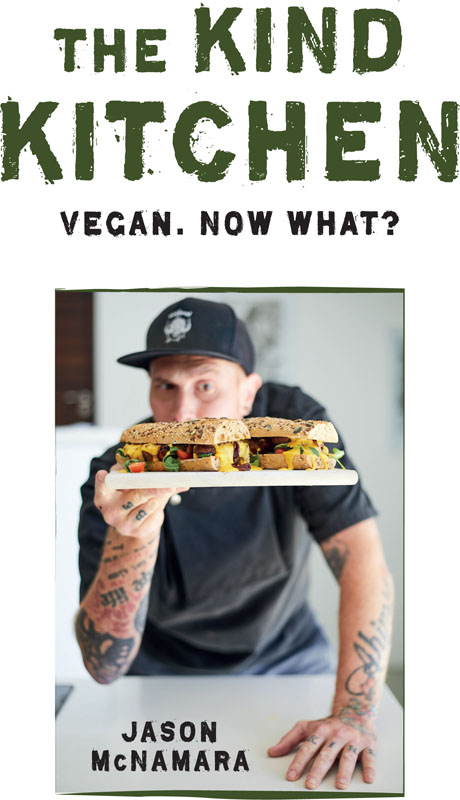
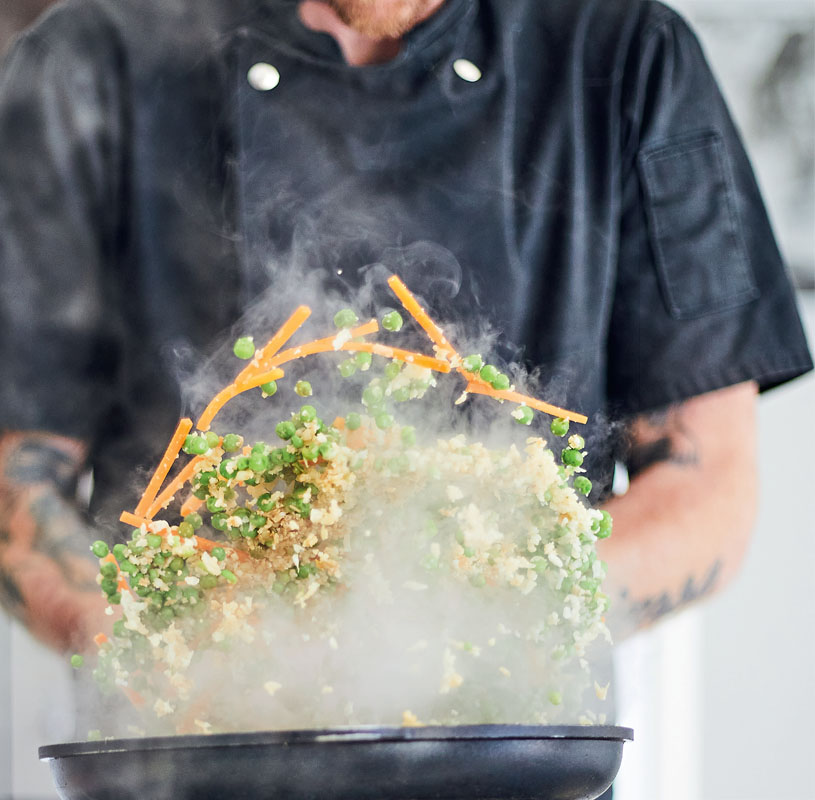
INTRODUCTION I was lucky enough to attend the Natural Epicurean Academy of Culinary Arts in Austin, Texas, in 2013, where I studied plant-based and vegan culinary arts under the tutelage of fellow South African, Inge Bothma. When I returned home to Cape Town in 2013, I created The Kind Kitchen brand. By early 2018, my vision had become to establish Africas first vegan butchery, where the only slaughter would be the skilful slaughter of vegetables! The juxtaposition and irony of this concept was, and continues to be, the exact action and talking point I believe is needed to guide global culinary changes and develop an awareness towards a kinder future for all. However, after many focus group conversations about the name the kind butcher, we realised that South Africa wasnt ready for a vegan butchery. Instead, we created a 100% vegan comfort-food restaurant called The Kind Kitchen. We grew from humble beginnings in my home as a dark kitchen, offering unique vegan dining experiences and a small online menu to clients in Cape Town, via the food delivery service Uber Eats.
By mid-2018, it had become evident that we needed bigger premises and so we found a small but suitable location in the trendy suburb of Woodstock. Through crowdfunding, we managed to raise a modest R38,000 which helped with basic startup costs and the first months rental, and so we launched. By late 2019, we were running two full-service restaurants, serving meals to thousands of customers monthly out of our original grungy Woodstock Brewery location, which seated just 16 people, and our more stylish 56-seater on the Constantia Uitsig wine estate. But, as with any good story, the plot was about to thicken. Enter Covid-19 stage right! As the world came to terms with the pandemic in early 2020, restaurants were among the first businesses to suffer the consequences of prolonged lockdowns and restricted trading conditions. We were forced to close both restaurants and reinvent ourselves.
However, the pandemic gave us a clear vision of what we needed to do to survive the economic nightmare. We quickly adapted to offer home delivery meals and online products, such as our ready-to-prepare Fegg Yolk Mix and Omelette Mix, artisanal handcrafted meats, ready-made meals and homemade sauces. Covid-19 brought heartbreak for many, as well as some events that were positively life-changing. For me, one of the most life-changing was the birth of my son, Flynn, in 2020. He is a constant reminder of why I am vegan! In my opinion, its the kindest way for us to live in harmony with the planet, a planet that needs our undivided attention if we are to survive as a species. Being vegan is my way of ensuring that Flynn and his generations, both my grandchildren and his grandchildren to come, will have the opportunity to enjoy the wonders of Mother Nature and a healthy planet.
After all, we dont have a Planet B to call home! This one is all we have and we have the power, right here, right now, to change the way we treat Mother Earth at least three times a day through the foods we choose to eat. Now, more than ever, is the best time to take the leap and move to a vegan diet or, at the very least, to a plant-based one. A vegan diet and lifestyle means that no part of any animal is consumed, worn or utilized in any shape or form. A great rule of thumb for vegans is Dont consume anything that shits, breathes and has a face!. Some may say this is extreme, but surely the slaughter of millions of animals annually is more extreme? A plant-based diet means that you eat mostly plants (fruits, vegetables, nuts, grains and seeds), but will consume dairy products, eggs or honey when the need arises. This book is not the place to dissect the politics that surround global eating habits.
Nor is it a book to judge or shame anyone who enjoys good food, in whatever form. Rather, it is an extraordinary culinary almanac. Its an ode to the Marty McFly vegan foodie dreamer in you. A dreamer with the power of knowledge. Knowledge that is designed to shape your future so you can go forth and prosper in your own health, the health of this beautiful planet we call home, and the life of all of the sentient beings we share it with. Think of this book as a time machine that directly connects you to your future self and generations to come.
By making kinder choices today, you can positively impact the future you dream of for yourself and the ones you love. Being vegan doesnt mean having to give up all the foods you love, or exist only on salads and veggies! Just the opposite. The Kind Kitchen cookbook showcases traditional dishes made vegan, using mostly wholefood ingredients, often combined with meat substitutes. Who knew that you could make meat from mushrooms, or burgers from beetroot? At its best, vegan cooking offers the reward of recreating your favourite foods using only natures bounty, with the certainty that your meal will be both nourishing to your body and beneficial to the planet. I hope that practising vegans will find exciting new recipes to try and love, while vegans-in-training will be encouraged to eat more meat-free meals. If we each take up the challenge to create our own kind kitchen at home, well all be fighting the good fight to save the future.
MAY THE FORK BE WITH YOU. Chef Jason McNamara, aka Jay Mac 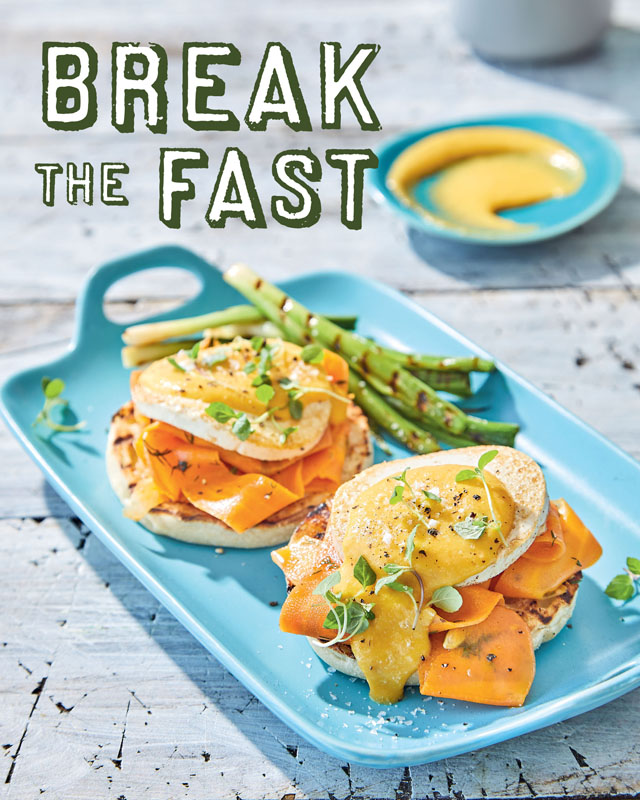 CARROT LOX BENEDICT This sublime brunch deserves all the praise youll get from creating it for the ones you love. Traditional lox is salmon cured in a salty brine (but not smoked). Eggs Benedict is smoked salmon and poached eggs, topped with hollandaise sauce. Ive combined them into a kickass vegan version. SERVES 4 1 kg large carrots cup (60 ml) olive oil 1 tsp liquid smoke (apple or beech) 2 Tbsp lemon juice 1 tsp sea salt tsp ground black pepper 23 Tbsp fresh dill, finely chopped 1216 asparagus spears 48 baby leeks, chopped 4 Tbsp olive oil, divided Black salt or sea salt to taste cup ( 4 Tbsp) lemon juice 350 g extra-firm tofu 4 Tbsp vegan butter 2 cups (500 ml) Cashew Hollandaise Sauce, see 4 English muffins or bagels Sea salt and black pepper to taste Microgreens or baby herbs, optional LOX Peel the carrots into long, thin strips, using a potato peeler.
CARROT LOX BENEDICT This sublime brunch deserves all the praise youll get from creating it for the ones you love. Traditional lox is salmon cured in a salty brine (but not smoked). Eggs Benedict is smoked salmon and poached eggs, topped with hollandaise sauce. Ive combined them into a kickass vegan version. SERVES 4 1 kg large carrots cup (60 ml) olive oil 1 tsp liquid smoke (apple or beech) 2 Tbsp lemon juice 1 tsp sea salt tsp ground black pepper 23 Tbsp fresh dill, finely chopped 1216 asparagus spears 48 baby leeks, chopped 4 Tbsp olive oil, divided Black salt or sea salt to taste cup ( 4 Tbsp) lemon juice 350 g extra-firm tofu 4 Tbsp vegan butter 2 cups (500 ml) Cashew Hollandaise Sauce, see 4 English muffins or bagels Sea salt and black pepper to taste Microgreens or baby herbs, optional LOX Peel the carrots into long, thin strips, using a potato peeler.
Spread the strips evenly in a steamer basket or colander and steam for 58 minutes until they turn dark orange and become slightly translucent. (Retain offcuts for juicing, making kimchi, or to snack on!) Place the steamed carrots in a baking dish lined with baking paper. Drizzle with olive oil, liquid smoke and lemon juice, season with salt and pepper and scatter over the chopped dill. Using tongs, gently turn the carrots to coat them. Bake in a preheated oven at 180C for 8 minutes, then turn, and cook for another 8 minutes (don't let them dry out or burn). Taste, and adjust the seasoning.
Set aside to cool (or place the carrot lox into a sterilized glass jar with dill sprigs and capers, cover with olive oil and store in the fridge for up to 1 month). While the carrots are cooking, blanch the asparagus in boiling water for 12 minutes, then drain, pat dry and cut into smaller pieces. Rinse the leeks in cold water and pat dry. Heat 2 Tbsp olive oil in a ridged grill pan over medium heat and gently fry the asparagus and leeks. Season with salt and pepper, then weigh down with a heavy pan or pot and cook for 3 minutes. Turn and cook the other side until lightly browned.

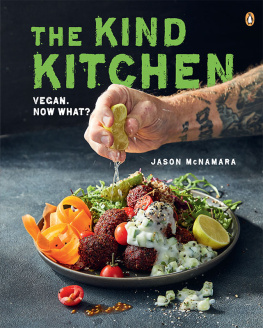
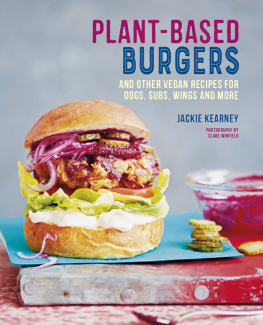

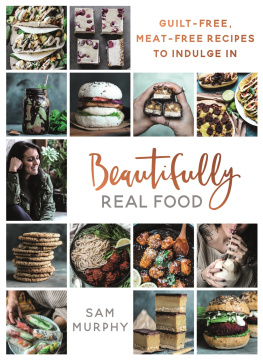
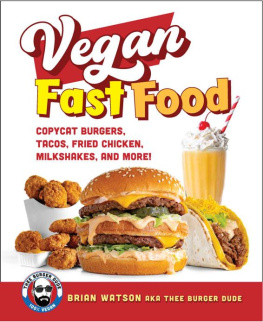
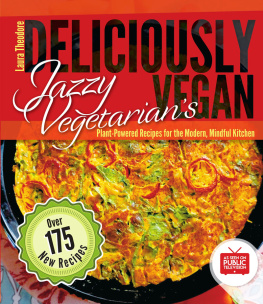
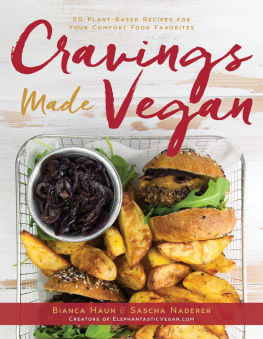
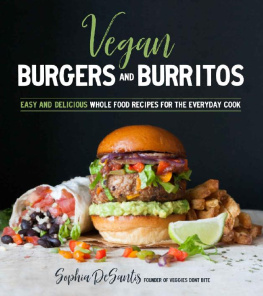


 INTRODUCTION I was lucky enough to attend the Natural Epicurean Academy of Culinary Arts in Austin, Texas, in 2013, where I studied plant-based and vegan culinary arts under the tutelage of fellow South African, Inge Bothma. When I returned home to Cape Town in 2013, I created The Kind Kitchen brand. By early 2018, my vision had become to establish Africas first vegan butchery, where the only slaughter would be the skilful slaughter of vegetables! The juxtaposition and irony of this concept was, and continues to be, the exact action and talking point I believe is needed to guide global culinary changes and develop an awareness towards a kinder future for all. However, after many focus group conversations about the name the kind butcher, we realised that South Africa wasnt ready for a vegan butchery. Instead, we created a 100% vegan comfort-food restaurant called The Kind Kitchen. We grew from humble beginnings in my home as a dark kitchen, offering unique vegan dining experiences and a small online menu to clients in Cape Town, via the food delivery service Uber Eats.
INTRODUCTION I was lucky enough to attend the Natural Epicurean Academy of Culinary Arts in Austin, Texas, in 2013, where I studied plant-based and vegan culinary arts under the tutelage of fellow South African, Inge Bothma. When I returned home to Cape Town in 2013, I created The Kind Kitchen brand. By early 2018, my vision had become to establish Africas first vegan butchery, where the only slaughter would be the skilful slaughter of vegetables! The juxtaposition and irony of this concept was, and continues to be, the exact action and talking point I believe is needed to guide global culinary changes and develop an awareness towards a kinder future for all. However, after many focus group conversations about the name the kind butcher, we realised that South Africa wasnt ready for a vegan butchery. Instead, we created a 100% vegan comfort-food restaurant called The Kind Kitchen. We grew from humble beginnings in my home as a dark kitchen, offering unique vegan dining experiences and a small online menu to clients in Cape Town, via the food delivery service Uber Eats.  CARROT LOX BENEDICT This sublime brunch deserves all the praise youll get from creating it for the ones you love. Traditional lox is salmon cured in a salty brine (but not smoked). Eggs Benedict is smoked salmon and poached eggs, topped with hollandaise sauce. Ive combined them into a kickass vegan version. SERVES 4 1 kg large carrots cup (60 ml) olive oil 1 tsp liquid smoke (apple or beech) 2 Tbsp lemon juice 1 tsp sea salt tsp ground black pepper 23 Tbsp fresh dill, finely chopped 1216 asparagus spears 48 baby leeks, chopped 4 Tbsp olive oil, divided Black salt or sea salt to taste cup ( 4 Tbsp) lemon juice 350 g extra-firm tofu 4 Tbsp vegan butter 2 cups (500 ml) Cashew Hollandaise Sauce, see 4 English muffins or bagels Sea salt and black pepper to taste Microgreens or baby herbs, optional LOX Peel the carrots into long, thin strips, using a potato peeler.
CARROT LOX BENEDICT This sublime brunch deserves all the praise youll get from creating it for the ones you love. Traditional lox is salmon cured in a salty brine (but not smoked). Eggs Benedict is smoked salmon and poached eggs, topped with hollandaise sauce. Ive combined them into a kickass vegan version. SERVES 4 1 kg large carrots cup (60 ml) olive oil 1 tsp liquid smoke (apple or beech) 2 Tbsp lemon juice 1 tsp sea salt tsp ground black pepper 23 Tbsp fresh dill, finely chopped 1216 asparagus spears 48 baby leeks, chopped 4 Tbsp olive oil, divided Black salt or sea salt to taste cup ( 4 Tbsp) lemon juice 350 g extra-firm tofu 4 Tbsp vegan butter 2 cups (500 ml) Cashew Hollandaise Sauce, see 4 English muffins or bagels Sea salt and black pepper to taste Microgreens or baby herbs, optional LOX Peel the carrots into long, thin strips, using a potato peeler.